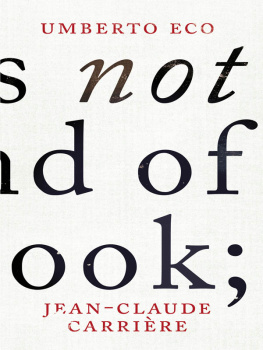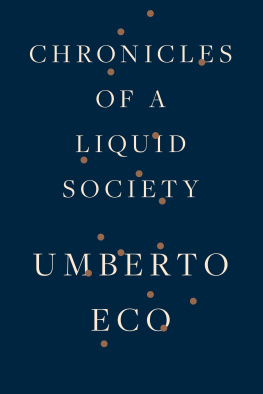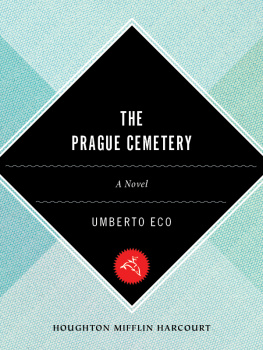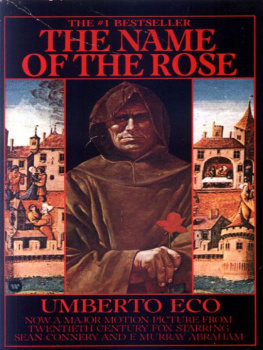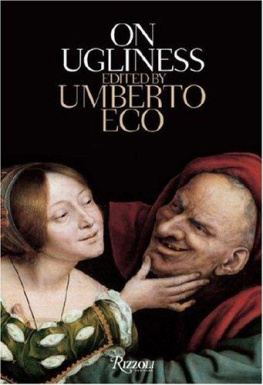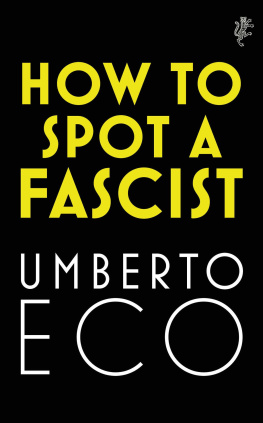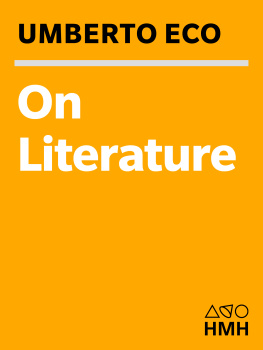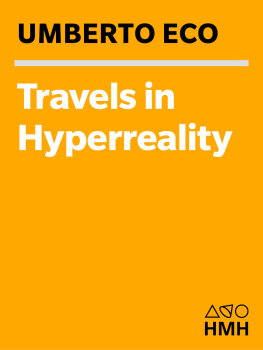
About the Book
These days it is almost impossible to get away from discussions of whether the book will survive the digital revolution. Blogs, tweets and newspaper articles on the subject appear daily, many of them repetitive, most of them admitting they dont know what will happen. Amidst the twittering, the thoughts of Jean-Claude Carrire and Umberto Eco come as a breath of fresh air.
There are few people better placed to discuss the past, present and future of the book. Both avid book collectors with a deep understanding of history, they have explored through their work the many and varied ways ideas have been represented through the ages. This thought-provoking book takes the form of a long conversation in which Carrire and Eco discuss everything from what can be defined as the first book to what is happening to knowledge now that infinite amounts of information are available at the click of a mouse. En route there are delightful digressions into personal anecdote. We find out about Ecos first computer and the book Carrire is most sad to have sold.
Readers will close this entertaining book feeling they have had the privilege of eavesdropping on an intimate discussion between two great minds. And while, as Carrire says, the one certain thing about the future is that it is unpredictable, it is clear from this conversation that, in some form or other, the book will survive.
About the Authors
Jean-Claude Carrire is a writer, playwright and screenwriter, who recently collaborated with Michael Haneke on his award-winning film The White Ribbon. He has worked with many of the twentieth centurys great directors including Peter Brook, Milos Forman, Buuel and Jean-Luc Godard, and is the author of Please Mr Einstein.
Umberto Eco has written works of fiction, literary criticism and philosophy. He came to fame with his first novel The Name of the Rose, a major international bestseller, and has since published four other novels, along with many brilliant books of essays. His sixth novel, The Prague Cemetery, is due out from Harvill Secker in 2012.
Jean-Philippe de Tonnac is a writer and editor. His interviews with Umberto Eco, Jean-Claude Carrire and Stephen Jay Gould were published in the book Conversations About the End of Time. He is also the editor of several collections of essays, not yet translated into English, which include A Universal Dictionary of Bread and An Encyclopaedia of Knowledge and Belief.
This eBook is copyright material and must not be copied, reproduced, transferred, distributed, leased, licensed or publicly performed or used in any way except as specifically permitted in writing by the publishers, as allowed under the terms and conditions under which it was purchased or as strictly permitted by applicable copyright law. Any unauthorised distribution or use of this text may be a direct infringement of the authors and publishers rights and those responsible may be liable in law accordingly.
Version 1.0
Epub ISBN 9781446468203
www.randomhouse.co.uk
Published by Harvill Secker 2011
2 4 6 8 10 9 7 5 3 1
Copyright ditions Grasset & Fasquelle 2009
English translation copyright Polly McLean 2011
Jean-Claude Carrire and Umberto Eco have asserted their right under the Copyright, Designs and Patents Act 1988 to be identified as the authors of this work
This book is sold subject to the condition that it shall not, by way of trade or otherwise, be lent, resold, hired out, or otherwise circulated without the publishers prior consent in any form of binding or cover other than that in which it is published and without a similar condition including this condition being imposed on the subsequent purchaser
First published with the title Ne pensez pas vous dbarrasser des livres in 2009
By ditions Grasset & Fasquelle
First published in Great Britain in 2011 by
H ARVILL S ECKER
Random House
20 Vauxhall Bridge Road
London SW1V 2SA
www.randomhouse.co.uk
Addresses for companies within The Random House Group Limited can be found at: www.randomhouse.co.uk/offices.htm
The Random House Group Limited Reg. No. 954009
A CIP catalogue record for this book is available from the British Library
ISBN 9781846554513
This book is supported by the French Ministry of Foreign Affairs as part of the Burgess programme run by the Cultural Department of the French Embassy in London. (www.frenchbooknews.com)
Ouvrage publi avec le soutien du Centre national du livre ministre franais charg de la culture
This book is published with support from the French Ministry of Culture Centre National du Livre
www.vintage-books.co.uk
Contents
Also available in English by Jean-Claude Carrire
Please Mr Einstein
Also available in English by Umberto Eco
Baudolino
The Island of the Day Before
Foucaults Pendulum
The Name of the Rose
Five Moral Pieces
Kant and the Platypus
Serendipities
How to Travel with a Salmon
Travels in Hyperreality
On Beauty
On Ugliness
The Book of Lists
Also written together (with Stephen Jay Gould and Jean-Philippe de Tonnac)
Conversations About the End of Time
Preface
In The Hunchback of Notre-Dame, Victor Hugo puts these famous words into the mouth of Archdeacon Claude Frollo: The book will kill the building When you compare [architecture] to the idea, which needs only a sheet of paper, some ink and a pen, is it surprising that the human intellect should have deserted architecture for the printing press?
Well, the great cathedrals those bibles in stone did not vanish, but the avalanche of manuscripts and then printed text that appeared at the end of the Middle Ages did render them less important. As culture changed, architecture lost its emblematic role. So it is with the book. There is no need to suppose that the electronic book will replace the printed version. Has film killed painting? Television cinema? However, there is no doubt that the book is in the throes of a technological revolution that is changing our relationship to it profoundly.
This extended conversation between Jean-Claude Carrire and Umberto Eco, which took place over the course of several sessions at their two homes, did not begin as an attempt to make emphatic pronouncements about the effects of the widespread (or otherwise) adoption of the electronic book. It was intended, rather, as a discussion about the nature of the book itself. The two mens experience as collectors of rare and ancient books has led them to argue here that the book represents a sort of unsurpassable perfection in the realm of the imagination. Whether we prefer to consider the invention of the book as dating from the first codices (about the eleventh century BC ) or from the more ancient papyrus scrolls, it is a tool that has remained remarkably true to itself for a very long time, over and above the changes in its form.
Next page
